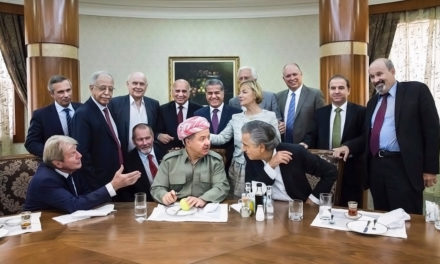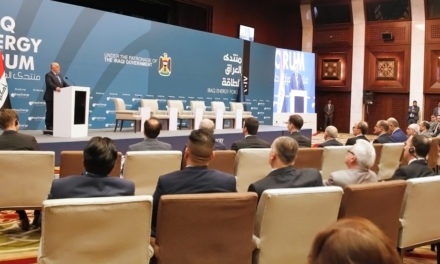After the recent Da’ish attacks in the area of Mukaishifiya last Friday, the pressure in Baghdad to form a new government has increased. This comes after the resignation of Adil Abd Al-Mahdi’s administration due to the country-wide demonstrations demanding tangible reforms in the post-2003 political system.
Mukaishifiya, where the new attack took place, is a hilly area close to Samarra where the shrine of Imam Ali Al-Hadi and Imam Hassan Al-Askari, a sacred site for the Shia lies. The demolition of the shrine by Al-Qaida in Iraq in 2006 pushed Iraq to the brinks of a full-blown civil war.
Al-Kadhimi and the possibility of success
The political turmoil Iraq finds itself in is a natural result, after two prime minister designates withdrew from the task of forming a new government. Democracy in Iraq has been practiced through the notorious “muhassasa” system which forms the basis for sharing power between the different ethnic and sectarian-based political factions in parliament. This system however was rejected clearly in the waves of demonstrations that Iraq witnessed since October 2019, as demonstrators demanded to fix this defect in this mechanism through which the Iraqi state is run.
The nomination of Mustafa Al-Kadhimi on April 9th was another attempt to reach political consensus, as envoys from the different political factions representing Sunnis, Shia, and Kurds attended the ceremony of the nomination. However, this consensus was quickly reversed, and the old habits of coalition government formation returned despite being strongly refused by the demonstrators.
The political infighting has taken the form of an intra-Shia struggle, where Kadhimi’s recent changes in his proposed cabinet makeup are seen as an attempt to please the Sunnis and the Kurds who initially objected to a few names, while denying the Shia the same right. A new phase began, which was similar to the one previous designates suffered from and ultimately forced them to withdraw their nomination.
What differentiates Kadhimi from his predecessors is that he has in-depth knowledge of the situation in the country, given that he headed the Iraqi National Intelligence Service, added to this the efforts of his team in measuring the pulse of the hard-to-please demonstrators in an attempt to understand their demands. Kadhimi’s team worked on discussing the demands of reform with representatives from the demonstration’s ‘coordination councils’ in Baghdad and other provinces.
Mukaishifiya
In the midst of negotiations and the leaks of several supposed cabinet lists, a number of Da’ish fighters in the areas of Mukaishifiya hills conducted attacks. In an unofficial statement, Kadhimi mentioned that the attack conducted by the remnants of the terror organization represent a failed attempt to invest in the political disagreement which prevents the formation of a new Iraqi government in order to conduct its patriotic duty of protecting the security of the citizens and pursing the terrorists from the homeland. This, according to Kadhimi, requires the different political factions to show more responsibility with regards to government formation, away from the spirit of selfishness and fighting over shares.
It is clear from Kadhimi’s statement that he is asking the different factions to move forward with passing his government and is a clear request from the political leadership to overcoming their differences and conduct their “patriotic duty”. Nevertheless, this sense of duty did not motivate the parties to move forward after the first major Da’ish attack took place in Kirkuk, when a suicide bomber targeted a police station. The Popular Mobilization Forces were also the target of several Da’ish platoons which conducted large scale attacks in the same area. Retired Major General and security analyst Imad Ulu told 1001 Iraqi Thoughts that it is required of the Iraqi Security Forces to be aware that Da’ish operations in the axis of Mukaishifiya and Balad/Al-Tarmina might mean an attempt to reinforce the connection and collaboration between the different wings of Da’ish in Diyala and Anbar through the hilly areas which assist their mobility, and it is possible that their strategic goal is Baghdad.
The leaked information from the meetings in the Prime Minister’s Guest House in the International Zone on Saturday, which is also the current residence of the third prime minister-designate, contains a lot of reassurances that the government formation process is being finalized in the coming hours through what is known in Iraq as the “accommodation” process.
On Wednesday Kadhimi submitted his government programme to parliament to be studied by a parliamentary committee and there is an expectation that parliament will convene soon to vote on Kadhimi’s cabinet.
But the question remains regarding which path Iraq’s political factions will chose: to respond swiftly to Mustafa Al-Kadhimi’s appeal and vote in favour of his government in order for it to inherit all the problems related to the COVID-19 pandemic, combat low oil prices, the resurgence of Da’ish, or vote against it and keep the government of Adil Abd Al-Mahdi which the parliament up until this moment has yet to vote on its resignation.

Wael Mazin
Wael Mazin is an Iraqi journalist. He is a researcher in Iraqi political and security affairs and has published several articles in Arab and foreign websites. Mazin has worked for several Iraqi news organizations, most recently NRT Arabic.










